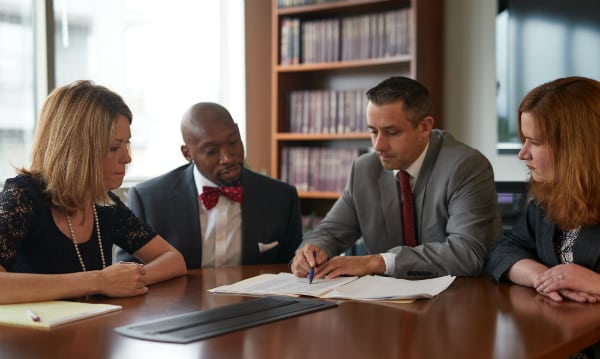Suppose you’re considering filing for bankruptcy but you’re about to receive a tax refund. You might need that money to catch up on bills or make repairs to your car. Whether you get to keep your tax refund after filing for Chapter 7 bankruptcy depends on when you received it, the timing of your bankruptcy case, and whether you can protect your refund with a bankruptcy exemption. The good news is if your tax refund equals up to thousands of dollars, you’re eligible to keep it.
Bankruptcy and Tax Refunds
Whenfiling bankruptcy in Tennessee, there are some chapter 7 tax refund requirements. Each person is allowed to exempt (protect) up to $10,000.00 of personal property. If you’re filing as a married couple, you get to keep $20,000.00 of personal property. This would include your furniture, jewelry, cars, household items, cash, and tax refund.
If your tax refund is up to $10,000, you can use the entire $10,000 exemption to keep the full tax refund. If your tax refund is $2,000, you can keep it all and still have $8,000 left for your furniture, television, etc. You can protect or keep your clothing under another exemption in addition to the $10,000 personal property exemption.
Protect Your Tax Return with Exemptions
Your tax refund is your property. However, until you receive the refund, it’s in the possession of the United States Treasury. Before they send you your refund, the IRS checks to see if you owe any money to a federal agency or if you have any child support obligations.
In many cases, the IRS will act as the “collection agent” for themselves, other federal agencies, or state child support agencies. The IRS may seize some or all of your tax refund through the federal intercept program.
You can protect your tax refund under your Chapter 7 bankruptcy estate if it’s protected by an exemption. If you’re eligible, you use a wildcard exemption to protect any property. A wildcard exemption is typically limited to a certain dollar amount and can be increased in some cases. Some states have wildcard exemptions that are usually enough to protect your tax refund.
In most cases, people will use the wildcard exemptions to protect their tax refund first, but you can also use it to protect other personal property, including a vehicle or electronics. If you’re not eligible for federal bankruptcy exemptions, many states have a lower value wildcard exemption that protects a portion of your tax return. It’s essential to thoroughly check all of your options on bankruptcy and tax refunds before making a decision.
Chapter 13 bankruptcy might be an alternate solution to allow you to keep your tax refund while paying back the federal agency, IRS, or past due child support at a more affordable rate.
What to Know Before Spending Your Tax Return
When you get your tax refund, you should talk to your attorney about your plans for spending it. You might be tempted to pay back friends or family members who loaned you money during hard times. However, these repayments can have negative consequences for you and your loved ones if you file for bankruptcy.
The Bankruptcy Trustee could deem these payments as “preferential payments”. The Trustee could sue your family member or friend for a return of those payments. Check out this video from Nashville Bankruptcy Attorney, Dan Castagna, explaining how to keep and correctly spend your tax refund so you don’t lose it when you file Chapter 7 bankruptcy.
Middle Tennessee’s Top Bankruptcy Attorneys
It’s critical that you speak with an attorney before spending or transferring any portion of your bankruptcy tax return. Oftentimes, the simplest solution is to hang onto it until after you file for bankruptcy. A trusted attorney can help you understand all of your options and help you avoid any pitfalls in the process.
Flexer Law has been serving the legal needs of Middle Tennessee residents since 1981. Our experienced bankruptcy attorneys will work diligently on your behalf to provide the best financial outcome for you.
We have three office locations throughout Middle Tennessee to accommodate your legal needs. Contact us to schedule a consultation, and we’ll find the best solution to get your financial life back on track.
Flexer Law Office Locations
- Nashville, TN
- Murfreesboro, TN
- Columbia, TN


